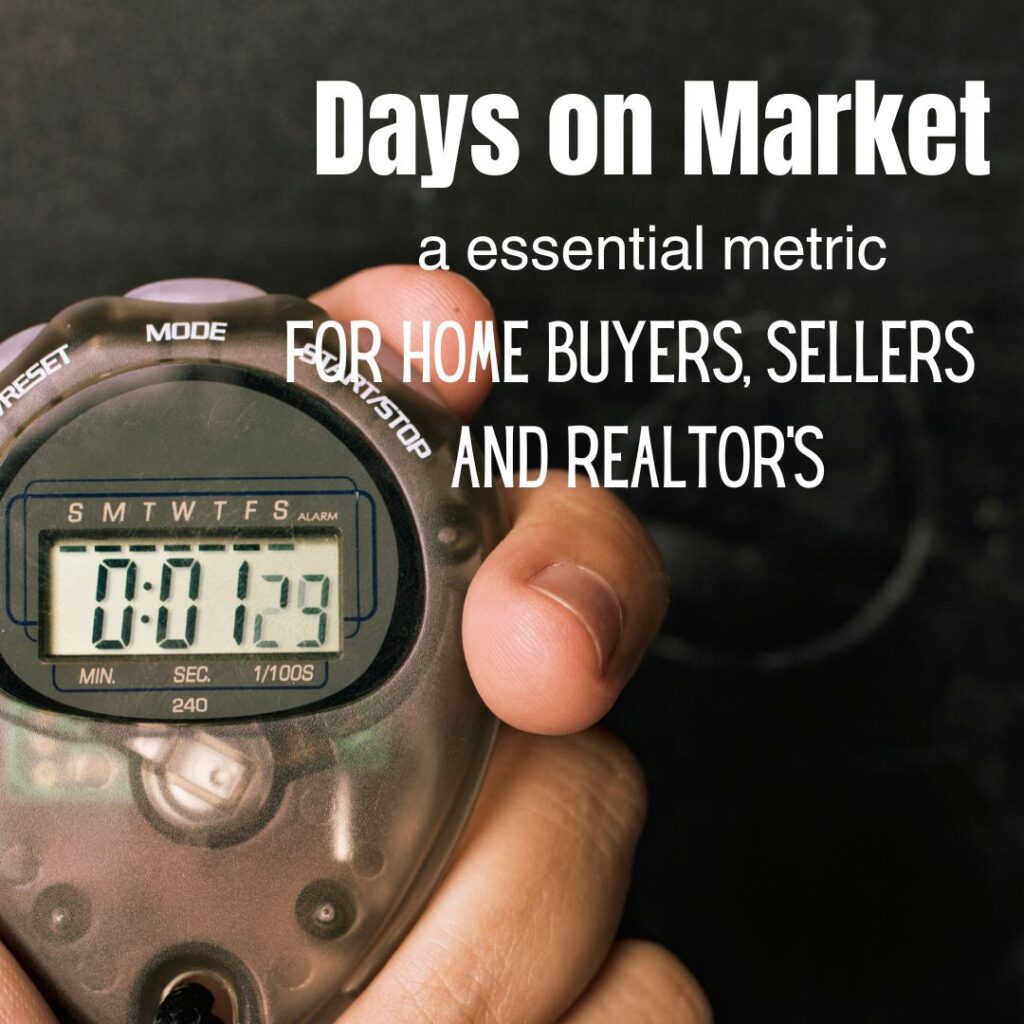 Pocket listings, often known as exclusive listings, are a type of real estate listing that are not publicly marketed through the Multiple Listing Service (MLS). Instead, they are kept confidential and only shared with a select group of preferred clients or agents.
Pocket listings, often known as exclusive listings, are a type of real estate listing that are not publicly marketed through the Multiple Listing Service (MLS). Instead, they are kept confidential and only shared with a select group of preferred clients or agents.
They can also be called non-MLS, office exclusive, off market or off MLS listings.
Sellers choose pocket listings to target a more exclusive clientele, maintain privacy, test asking price strategy discreetly, avoid bidding wars, avoid showings, negotiate reduced commissions, and avoid price reductions.
While off market listings offer privacy and the opportunity to gauge interest before going public, they have a significant downside.
They drastically limit the exposure of your home. And, the more exposure our home gets to the right buyers, the more likely you will get an excellent price for your home.
Jump To A Section....
How Pocket Listings Work
In the world of real estate, pocket listings have become an alternative for sellers looking for privacy and exclusivity. These listings operate outside the realm of the traditional Multiple Listing Service (MLS), allowing sellers to keep their property off the market and maintain a sense of confidentiality.
Marketing Tactic
In today’s red-hot real estate market, agents will take a home for sale as a pocket listing while the house is being prepared for the market. If the right buyer comes along in that period and a sale is negotiated, the seller can prepare the home and save themselves the hassle.
Once the home is fully prepared, it will be converted to an Exclusive Right to Sell and marketed through the MLS.
Understanding the Concept of Pocket Listings
Pocket or exclusive listings refer to properties deliberately kept confidential and shared only with a select group of clients or agents. While your home is for sale but not listed through the MLS. You will not find your home listed on Zillow, Realtor.com, Redfin, Coldwell Banker, etc…
Rather than publicly advertising on the MLS, non-MLS listings are quietly marketed within a private network, often a minimal network. You are relying on the agent or agency’s pool of buyers to step up and purchase your home.
Once the home is fully prepared, it will be converted to an Exclusive Right to Sell and marketed through the MLS.
Understanding the Concept of Pocket Listings
Pocket or exclusive listings refer to properties deliberately kept confidential and shared only with a select group of clients or agents. While your home is for sale but not listed through the MLS. You will not find your home listed on Zillow, Realtor.com, Redfin, Coldwell Banker, etc…
Rather than publicly advertising on the MLS, non-MLS listings are quietly marketed within a private network, often a minimal network. You are relying on the agent or agency’s pool of buyers to step up and purchase your home.
The Role of Real Estate Agents in Off-Market Listing
Real estate agents or REALTORS play a crucial role in facilitating an off-market home sale. They act as gatekeepers, ensuring that only qualified buyers or agents gain access to these exclusive opportunities.
In addition to maintaining confidentiality, agents use their network and connections to match sellers with potential buyers discreetly.
The Process of Keeping a Property Off the Market
When a seller opts for a pocket listing, they keep their property off the public market. The property is not listed on the MLS or publicly advertised.
Instead, the seller’s agent selectively shares information about the property with a limited number of eligible buyers or agents, creating a sense of exclusivity.
Benefits of Pocket Listings for Sellers
Several benefits entice sellers to consider agency exlusive. First and foremost, they offer a level of privacy and discretion unmatched by traditional listings. Sellers control who can access information about their property, limiting potential disruptions and public attention. Some sellers don’t want to announce to the world they are moving.
Additionally, pocket listings allow sellers to test the market before making their listing public. By gauging interest from a select group of buyers, sellers can assess the demand and determine whether to proceed with a full MLS listing.
Furthermore, they can be advantageous for sellers who wish to avoid bidding wars and negotiate reduced commissions. With the exclusive nature of pocket listings, sellers have more control over the negotiation process and can potentially secure a favorable deal.
Challenges and Risks of Off Market Listings
While they may seem to offer advantages, they are not without their challenges and risks.
One of the main disadvantages is the limited exposure to potential buyers. Since non-MLS homes operate outside the MLS, sellers may miss out on a broader pool of potential buyers who rely on MLS notifications. A home listed in the MLS will be at the fingertips of thousands of potential buyers and agents working with buyers at the push of a button.
A private listing will drastically reduce the number of showings your home will receive.
Another drawback is the lack of transparency for buyers. With an exclusive listing, buyers have limited information, making assessing the market value and comparing properties more challenging. This lack of transparency can result in missed opportunities or less informed purchasing decisions.

Ethical Concerns Of A Pocket Listing
Lastly, this type of listing has raised ethical concerns in the real estate industry. Some argue that the exclusive nature of pocket listings may lead to unfair practices and hinder market transparency.
As a result, certain real estate organizations and associations have prohibited or restricted the use of exclusive agency contracts.
For most sellers looking to get top dollar for their home, a in house listing is probably not suitable for you. The more eyes on the property, the better chance of getting a great offer.
Pocket Listing Pros And Cons
Private listings offer several advantages for sellers looking for a more exclusive and private approach to selling their property. Here are some key benefits:
- Privacy and Exclusivity for Sellers: Pocket listings allow sellers to maintain a higher level of privacy as their property is only shared with a select group of potential buyers or agents.
- Testing the Market Before Public Listing: With an off-market listing, sellers can gauge the market’s interest and test their desired price without making their property widely available.
- Avoiding Bidding Wars and Negotiating Reduced Commissions: By keeping the listing private, sellers can potentially avoid bidding wars and have more control over negotiations, including the possibility of negotiating reduced commissions with agents.
Disadvantages and Limitations of Pocket Listings
While pocket listings offer certain advantages, there are also disadvantages and limitations that both buyers and sellers should consider:
- Limited Exposure to Potential Buyers: The confidential nature of houses not listed publicly means they are not accessible to all potential buyers. This results in limited exposure and potentially fewer offers.
- Lack of Transparency for Buyers: Buyers may miss out on opportunities if they are not aware of or have access to pocket listings. The lack of transparency in the process can leave buyers at a disadvantage.
- Ethical Concerns and Industry Impacts: Pocket listings have raised ethical concerns within the real estate industry. And some professional organizations have taken steps to restrict or prohibit their use due to potential harm to market transparency.
Considering these pros and cons is crucial for both sellers and buyers when deciding to go this route. Understanding the potential benefits and drawbacks can help make an informed decision based on individual goals and market conditions, with the guidance of experienced real estate agents.
The Bottom Line
When deciding whether to go the off MLS route, carefully evaluating the potential benefits and drawbacks is crucial. Factors to consider as a seller or buyer include market conditions, personal preferences, and the advice of experienced real estate agents.
Evaluating the Decision to Use a Pocket Listing
Before opting for an agency exclusive listing, sellers should assess their goals and the current real estate market. They should consider if maintaining privacy, targeting a select limited clientele, or testing the market discreetly aligns with their objectives.
Engaging in this type of listing can give sellers control over the transaction process. But it will limit exposure and potentially impact the price negotiation dynamics. Off- market Listings are not for the everyday home seller.
Be wary about a listing agent recommending an off-MLS listing and leaving it as a pocket listing indefinitely. An unscrupulous agent’s motives may not be aligned with yours. A listing agent’s desire to do a pocket listing is they get both sides of the commission. Meaning they make more money.
Factors to Consider as a Seller or Buyer
Several factors play into the decision-making process for both sellers and buyers in reference to pocket listings:
- Market Conditions and Competition: Understanding the local market trends, supply and demand, and the level of competition can help sellers gauge the feasibility and advantages of a pocket listing strategy. Similarly, buyers should consider how pocket listings may affect their chances of finding suitable properties and competing with other buyers.
- Personal Preferences and Goals: The desire for privacy, exclusivity, or flexibility might heavily influence a seller’s decision to pursue a pocket listing. On the other hand, buyers should assess their willingness to accept potential limitations in available options and information.
- Advice of Experienced Real Estate Agents: Engaging with reputable real estate agents who know about pocket listings and are well-informed about local market dynamics can be invaluable. They can provide valuable guidance and help align individual goals with the most appropriate strategy.
By carefully considering these factors, sellers and buyers can make informed decisions regarding using pocket listings. It is essential to weigh the potential benefits of privacy, exclusivity, and streamlined negotiation processes against the limitations in exposure and transparency that pocket listings may entail.
Remember that the real estate landscape and regulations surrounding pocket listings can vary. It is advisable to stay updated on industry developments and consult professionals for the most accurate and relevant advice.
What Is a Pocket Listing?
A pocket listing is an exclusive real estate listing not publicly advertised on the Multiple Listing Service (MLS). In this section, we will delve into the definition and characteristics of pocket listings, explore the distinctions between pocket listings and traditional listings, address common misconceptions, and understand the role of the Multiple Listing Service (MLS).
Definition and Characteristics of Pocket Listings
A non-MLS property listing is kept confidential and not publicly marketed on the MLS. Unlike traditional listings, pocket listings are shared only with a limited number of preferred clients or agents. This provides exclusivity and privacy.
The property is not accessible to the wider market, allowing sellers to maintain a certain level of secrecy and control over the sale process.
A property hits the MLS and with in a day or two every potential home buyer for your house knows its on the market. Compared to an agent getting a pocket listing, they tell a few agents and a handful of buyers about your home.
Distinctions Between Pocket Listings and Traditional Listings
There are several key distinctions between pocket listings and traditional listings:
- Pocket listings are not publicly advertised on the MLS, while traditional listings are widely marketed to the general public.
- Pocket listings cater to a select group of clients or agents, offering exclusivity and a more targeted approach, whereas traditional listings aim to reach the widest possible audience.
- Traditional listings typically involve a comprehensive marketing strategy, including online listings, open houses, and other promotional activities. In contrast, pocket listings rely on personal connections and word-of-mouth referrals.
Common Misconceptions About Pocket Listings
There are some misconceptions surrounding pocket listings that are worth addressing:
- Misconception: Agency exclusives always result in higher sale prices. In reality, the limited exposure of pocket listings may lead to fewer offers and potentially lower sale prices than traditional listings.
- Misconception: Exclusive agency listings are only used by luxury properties. While pocket listings are often associated with high-end real estate, they can be utilized for properties in various price ranges.
- Misconception: Publically withheld listings are illegal or unethical. While non-MLS listing have received scrutiny due to their limited transparency, they are not inherently illegal or unethical. However, industry regulations and ethical guidelines vary, and consulting with knowledgeable real estate professionals is crucial.
Understanding the Role of Multiple Listing Service (MLS)
The Multiple Listing Service (MLS) is a database real estate professionals use to share property information and market properties to a wider audience. It is a central hub for real estate listings and is a vital resource for buyers and sellers.
While a private listing can bypass the MLS, it’s important to note that the MLS offers numerous advantages, such as increased exposure to potential buyers, access to accurate and up-to-date market data, and broader networking opportunities for real estate professionals.
Understanding the MLS’s role helps and how withholding your home from the MLS can seriously limit your pool of buyers.
Why Would a Seller Choose a Pocket Listing?
Are Pocket Listings Legal?
How Can I Find Pocket Listings?
Do Pocket Listings Benefit the Buyer or the Seller?
Are Pocket Listings Suitable for All Types of Properties?
Conclusion
A pocket listing is a tool in an agent’s arsenal to help you achieve your goals when selling a house. Realize it is for a tiny group of sellers who usually want to maintain privacy or confidentiality. They don’t want to announce their home is for sale to the world.
It comes with a very distinct disadvantage…. exposure. Your home will be marketed to a minuscule fraction of the potentially interested buyers you would have if listed traditionally.
Make sure the benefits of a pocket listing for you outweigh the downsides. If your agent is recommending a pocket listing to you consider if it is in your best interest or your agents best interest.

Author Bio
Kevin Vitali is a Massachusetts REALTOR out of Haverhill MA that serves Essex County and Northern Middlesex County in Massachusetts. If you want to buy or sell a home, let me use my years of experience to get you the best possible outcome.
Feel free to contact me to discuss any upcoming moves. I am always happy to answer your questions
Call 978-360-0422 Email kevin@kevinvitali.com




